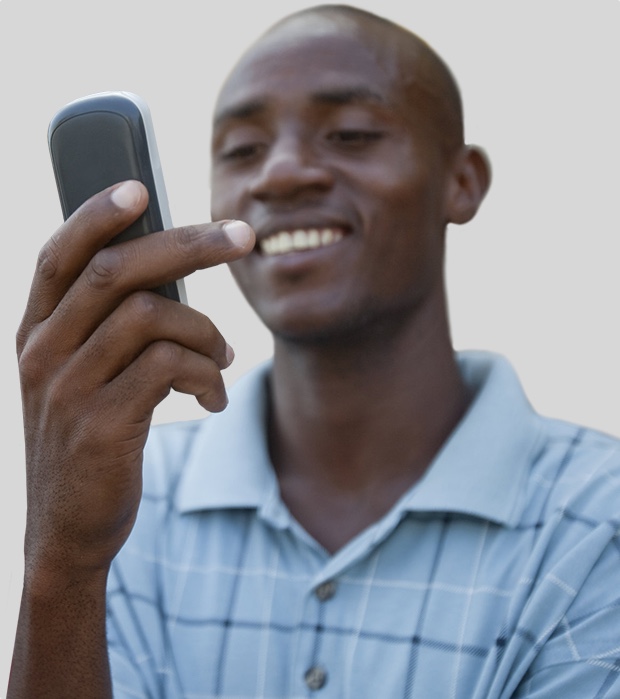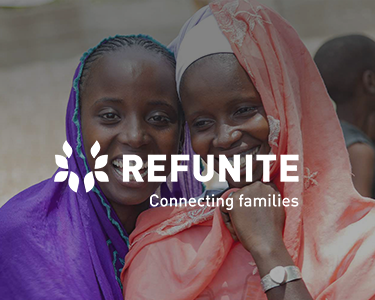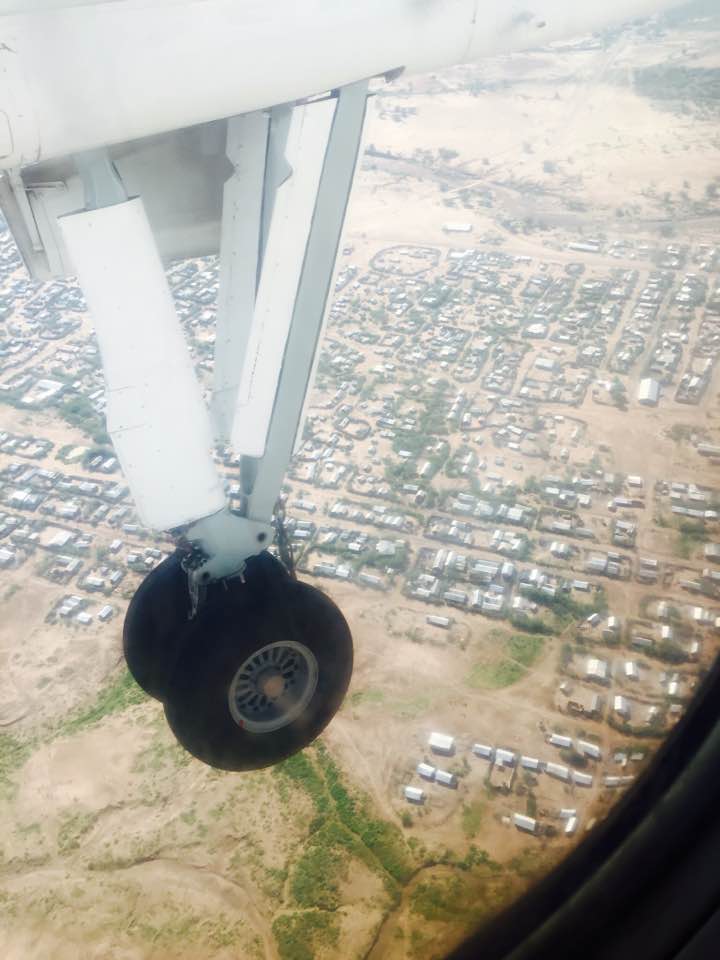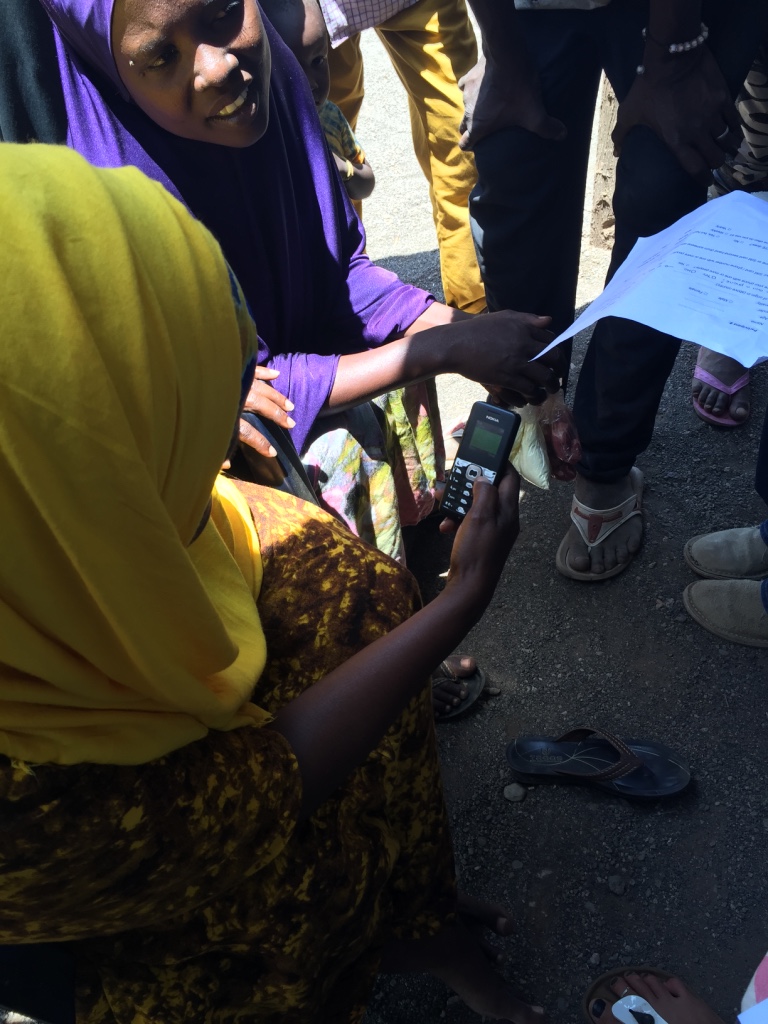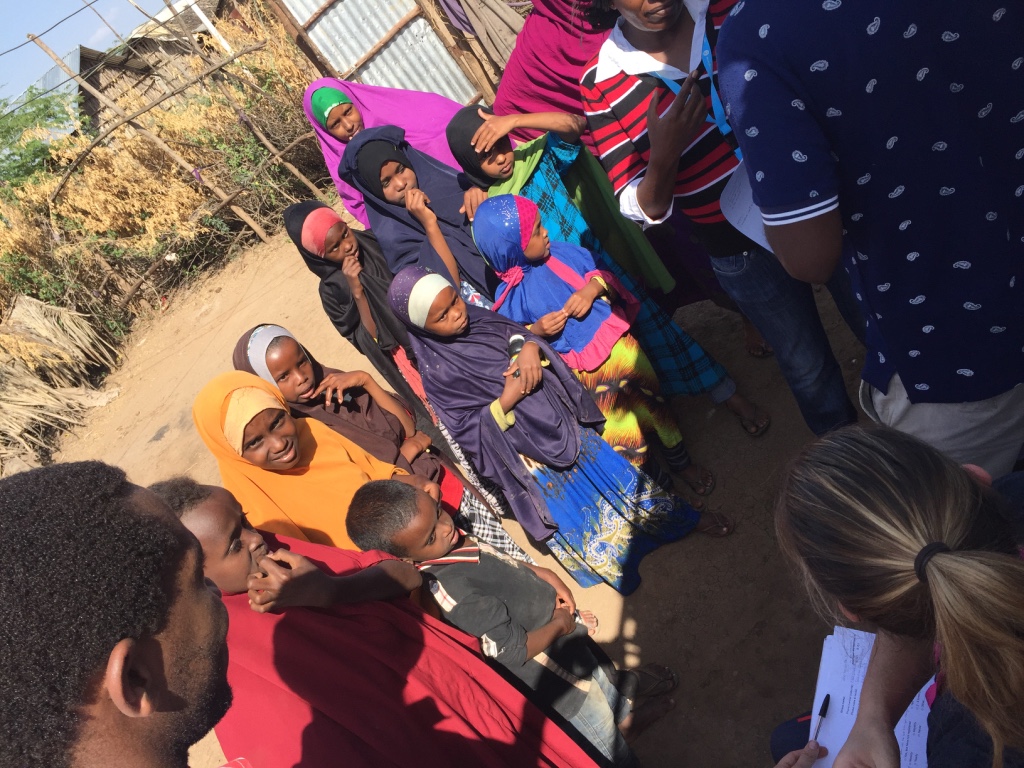
Last August, the largest ever REFUNITE ‘delegation’ travelled to Kakuma Refugee Camp, in North Western Kenya for an intensive week of work in the field. This is a photo journey from Kakuma and some of the impressions from the camps.
KAKUMA PHOTO ESSAY
REFUNITE Delegation in Kenya’s second largest refugee camp
Last August, the largest ever REFUNITE ‘delegation’ travelled to Kakuma Refugee Camp, in North Western Kenya for an intensive week of work in the field. Alexandra Broner, Kennedy Steven, Lotta Relander, Giulia Balestra, Eddy Mwenda, and Kelvin Mungai headed to the refugee camp to test new technologies and assumptions and came back with important insights and findings to share with the team in Nairobi. This is a photo journey from Kakuma and some of the impressions from the camps.
“Ladies and Gentlemen, Welcome to Kakuma”. It’s early Monday morning when our delegation lands on a strip of tarmac in what looks like a volcanic landscape. Home to nearly 200,000 refugees from South Sudan, Ethiopia, Somalia, Burundi and Congo, Kakuma is Kenya’s second largest refugee camp and one of the biggest ones world-wide. This is the beginning of our week-long mission in Kakuma Refugee Camp, and the word mission is more than ever accurate for what we are planning to achieve in the camps over the next days. Ranging from USSD testing and web prototyping, to an Android product test, to conducting surveys on user verification systems, there is a reason for each of us to be here.
Less than one hour after landing, we are in the field. On day one, some of us will be working on web and Android testing while others will go door-to-door to conduct a survey that aims to better understand users’ familiarity with verification systems (such as log-ins, and passwords), as well as feelings and concerns about user privacy and security.
With the support of our Project Officer Joy Bulimwa, and moving from household to household, we interviewed Somali, South Sudanese and Congolese refugees, young and old, male and female, tech-savvy or not. Finding respondents who are willing to be interviewed is an easy task. People gather around with curiosity and they are happy to share their stories and perspectives with us.
The difficult part of our work, besides enduring the heat and dust, is connectivity in the camps. Both for us conducting the online surveys and the refugees trying to register onto the REFUNITE platform. Without stabile and reliable connectivity everything takes longer and requires some extra efforts, patience and adaptability. At times, we have to move away from the online surveys to the low-tech paper and pen solution, or switch off phones and restart the registration process again. In the camps, we learn how to be flexible and adjust to the context and to some of the constraints that the fields dictates.
Technical challenges aside, it is clear that the need for family tracing and for connection tout-court in Kakuma is real. The vast majority of the refugees we talk to continue to search for their missing family members. Working closely with REFUNITE’s outreach volunteers, we remind our users about the service and the different ways in which they can access the REFUNITE’s platform. We also make sure that families understand that, by searching frequently on REFUNITE’s platform, they increase their chances of being reconnected with missing family.
While we continue with the interviews, other team members visit other sections of the camp to test USSD, and web products. The participants all show a great level of interest and enthusiasm, although we have to deal with the same issues with the network. Despite this being a real challenge, it is also a precious learning moment for our team members. If we want to improve our REFUNITE’s services and introduce new ways of connecting people in Kakuma and elsewhere, we need to first understand and experience first-hand how connectivity is, how it works or doesn’t, in the camps.
Later in the afternoon, the team gathers again and together we get on the minibus that takes us back to our compound. All of us are exhausted by the harsh climate in Turkana and the unusually long day, but also grateful for what we have learned in just one day.
In the car, while the sun seems to rush behind the horizon, I mentally take pictures of Kakuma to better remember what makes it so special and different: The “Sheraton Hotel” where you can get an authentic Ethiopian caffeine fix and fresh injera all day long, slender profiles of South Sudanese men walking afar, the “Mandela SIM shop” to buy a new, or even not so new, phone or SIM card, Turkana women wearing beautiful colored beads on their neck, and an open air improvised cinema screening Rio Olympic Games when the night comes.
20th September 2016.
